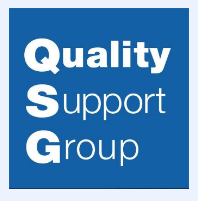Well-run supply chains enable revenue generation, reduce risk, and increase innovation in both the operations as well as the product/service development areas of an organization. It is imperative that everyone speaks the same supply chain language in order to get maximum results.

Well-run supply chains enable revenue generation, reduce risk, and increase innovation in both the operations as well as the product/service development areas of an organization. It is imperative that everyone speaks the same supply chain language in order to get maximum results.
Supply Chain Management (SCM) is an overview course, appropriate for experienced professionals, as well as those new to the field and seeking an understanding of what everyone else does in the supply chain.
Training is designed to provide: an introduction to your internal and extended supply chains; insight into how supply chains work; information about what tools to use where, when, and how; a primer on current methodologies and processes such as Lean, forecasting, and Sales and Operations Planning (S&OP); and an introduction to what digital technologies can do for your supply chains.
Immediately following SCM’s six 4-hour sessions, participants will be able to successfully communicate and pose questions in supply chain meetings; work with tools in various functional areas; understand how changes in one area of a supply chain affect the operations in another area; perform basic problem-solving skills; and be ready to take an official supply chain certification prep course.
Learning Objectives:
Through training, participants will learn:
Quality Support Group is a one-stop consulting solution for companies. We identify and deliver both strategic and operational level improvements to our clients.
QSG’s consulting services include developing and implementing business and quality management systems, leading Lean-Sigma initiatives, and designing risk management strategies.
© 2025 coursetakers.com All Rights Reserved. Terms and Conditions of use | Privacy Policy